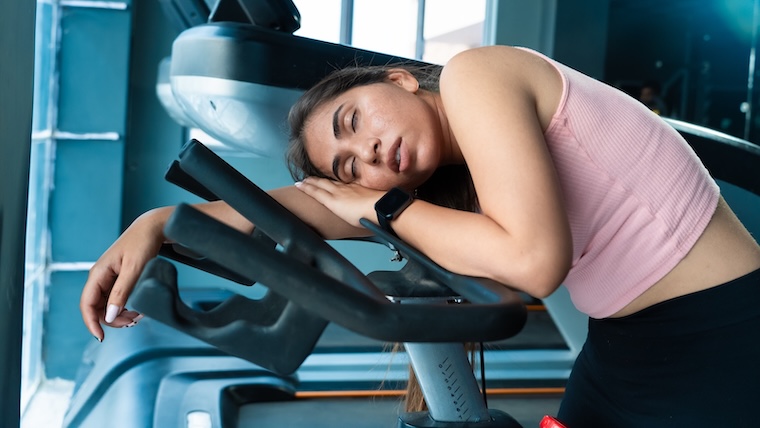Not everyone is a morning person. Some value the early hours of the day for coffee, breakfast, and taking in the restful sing-songs of jubilant birds chirping about the next PR you’ll hit in the gym. An April 2025 study in Nature Communications might have made those sing-songs slightly less cheerful.
On April 15, researchers Josh Leota et al. gathered training data from 14,689 physically active individuals for one year to assess “4,084,354 person-nights” and the relationship between “strenuous evening exercise and objective sleep.” (1)
The findings showed that “later exercise timing and higher exercise strain are associated with delayed sleep onset, shorter sleep duration, lower sleep quality, higher nocturnal resting heart rate, and lower nocturnal heart rate variability.“

If a participant performed maximal exercise six hours before their habitual sleep time (i.e., when they typically went to bed), then “exercise strain was positively correlated with sleep duration,” meaning the harder they trained, the longer they slept.
However, training within six hours before sleeping correlated with progressively reduced sleep duration. Maximal exercise garnered 22.2 fewer minutes of sleep than light exercise in that timing window, and training maximally within two hours before sleep rendered 42.6 fewer minutes of sleep. Sleep quality trends similarly.
The secondary analysis of the results showed the same results as those of the primary study. There were no differences between gender or body mass index (BMI).
While the statistics associate training later with worse sleep compared to training six hours or more before bedtime, that isn’t necessarily a direct causation. “Strenuous evening exercise may also be associated with behavioural consequences that can impair sleep,” the study suggested, referring to consuming pre- or post-workout supplements that could contain caffeine. Additionally, they noted that alcohol negatively impacts sleep.
The recommendations following the study include performing lighter exercise if training closer to bedtime is unavoidable. Future studies in this space could become more specific in the type of exercise within what is considered strenuous (i.e., training for a powerlifting meet, Olympic weightlifting, etc.).
More In Research
- Does Fasted Cardio Work?
- Is It Possible to Target Visceral Fat?
How Intermittent Fasting Affects Muscle Gains
Featured image via Shutterstock/stockpexel